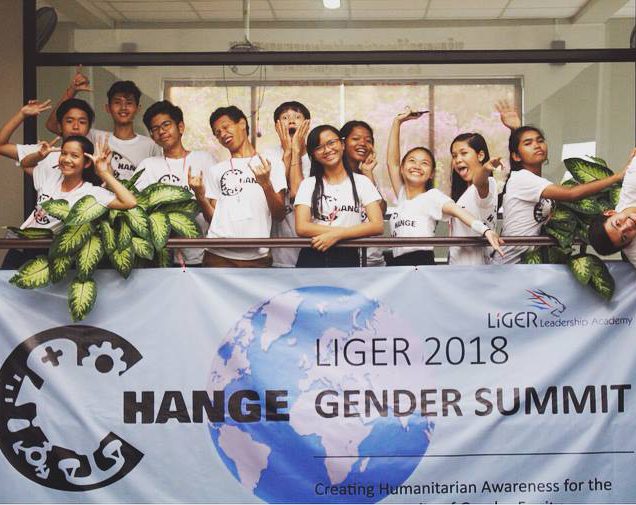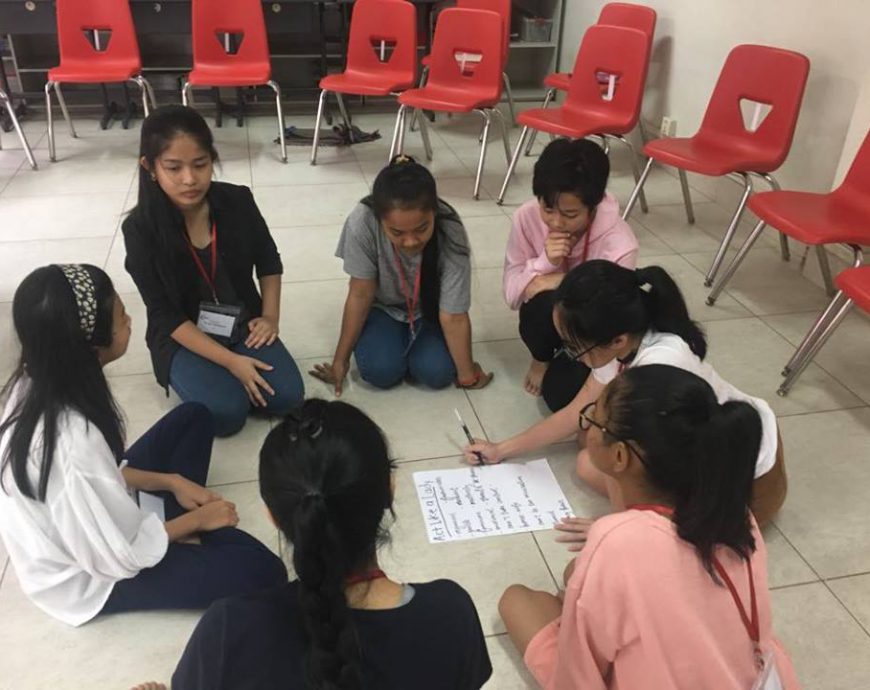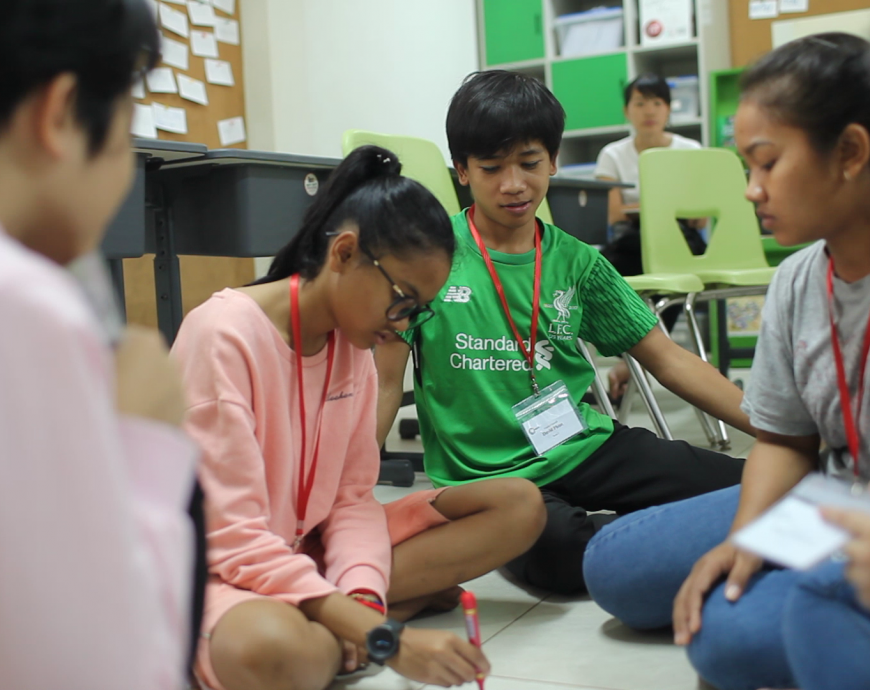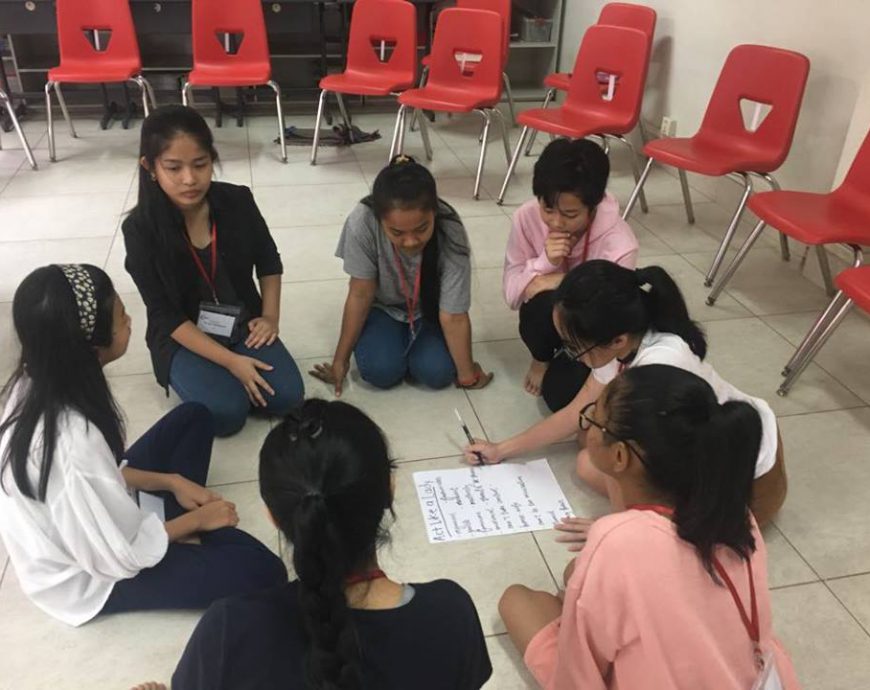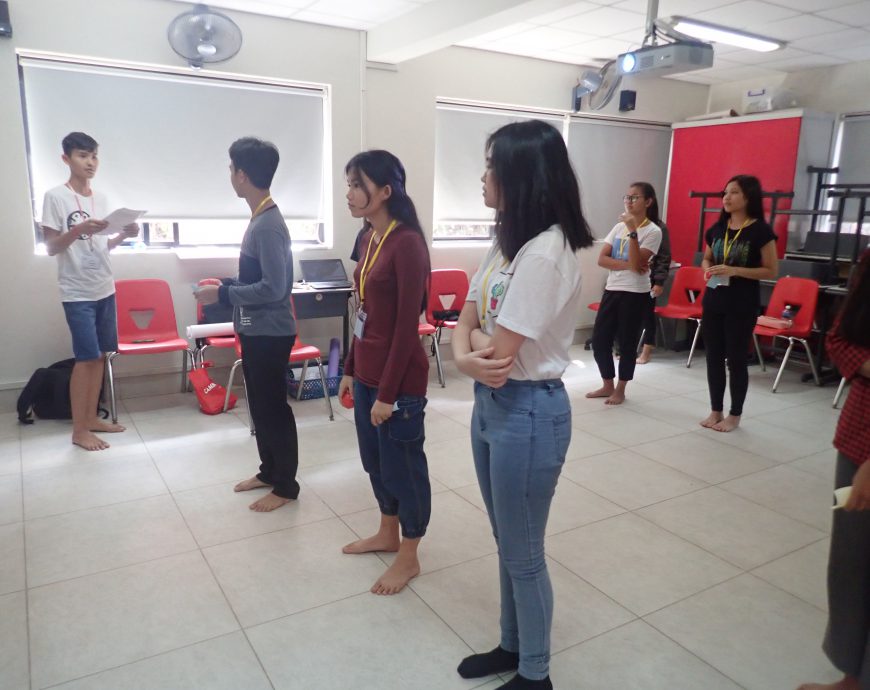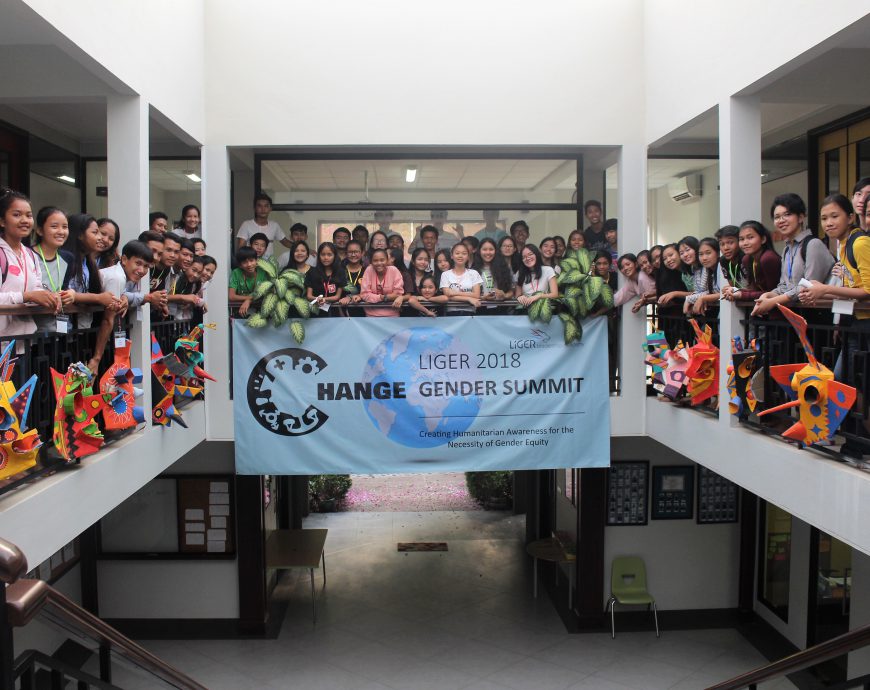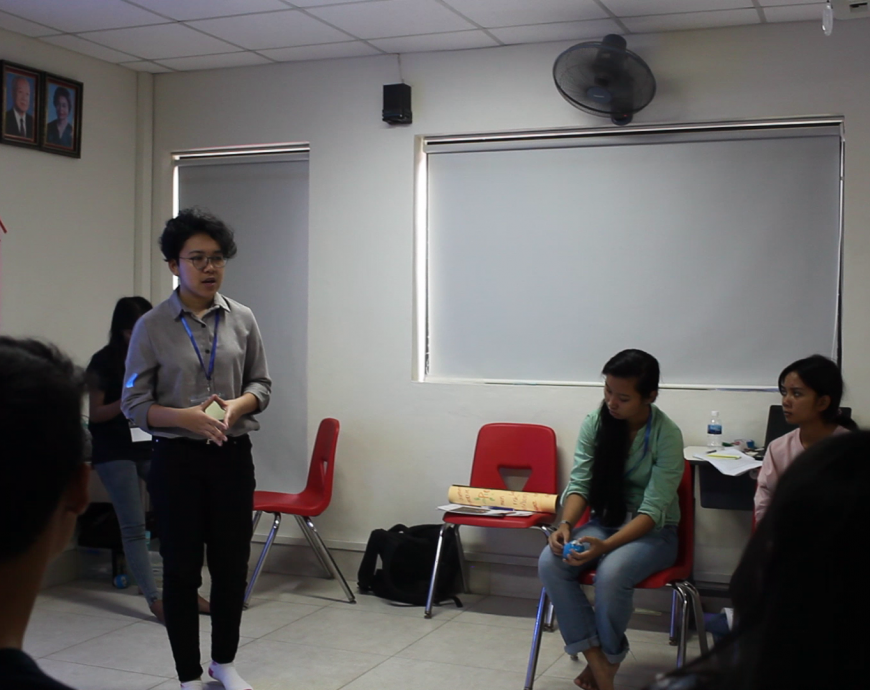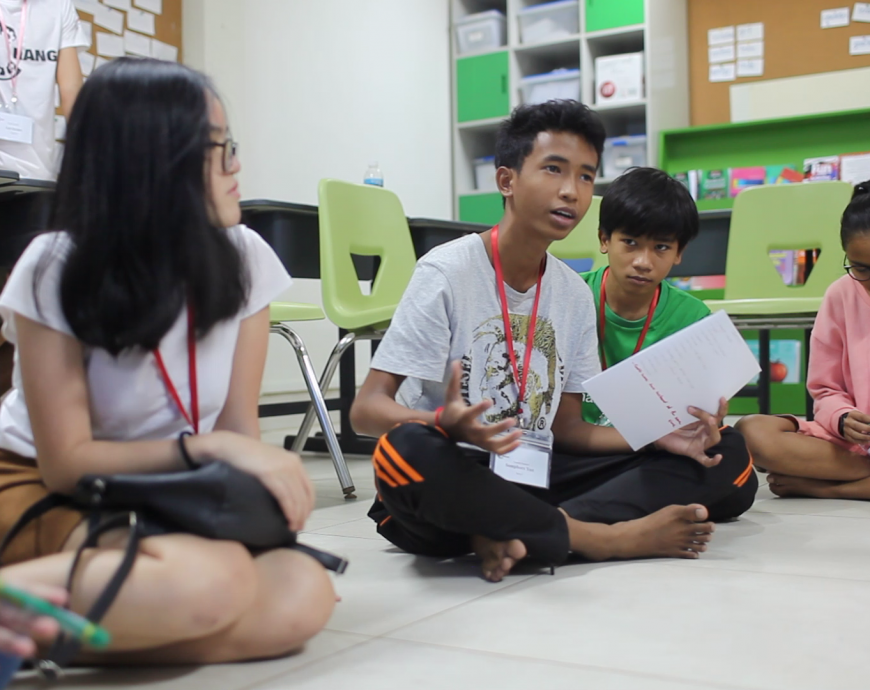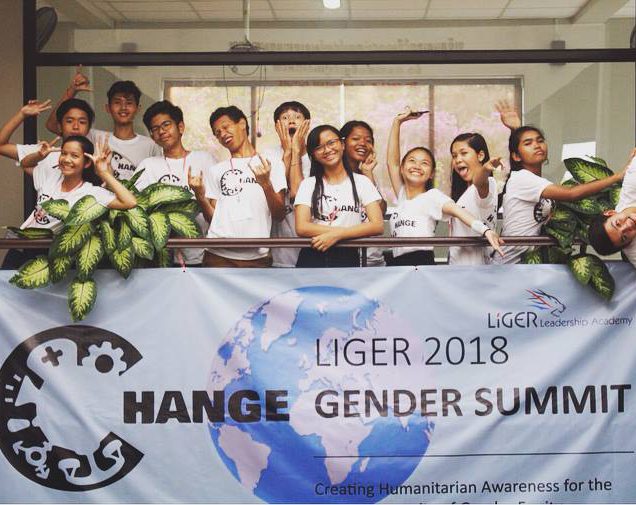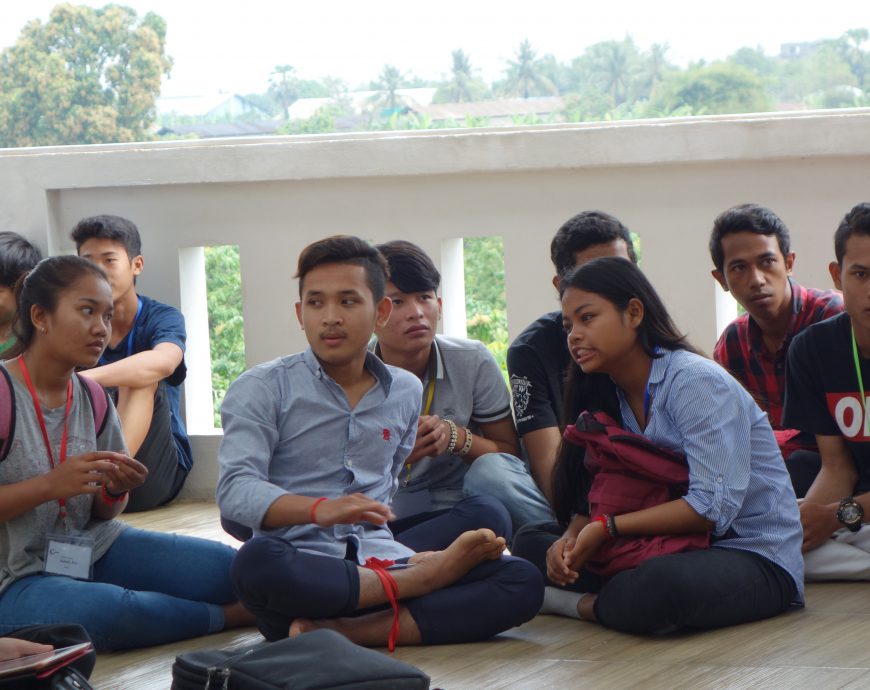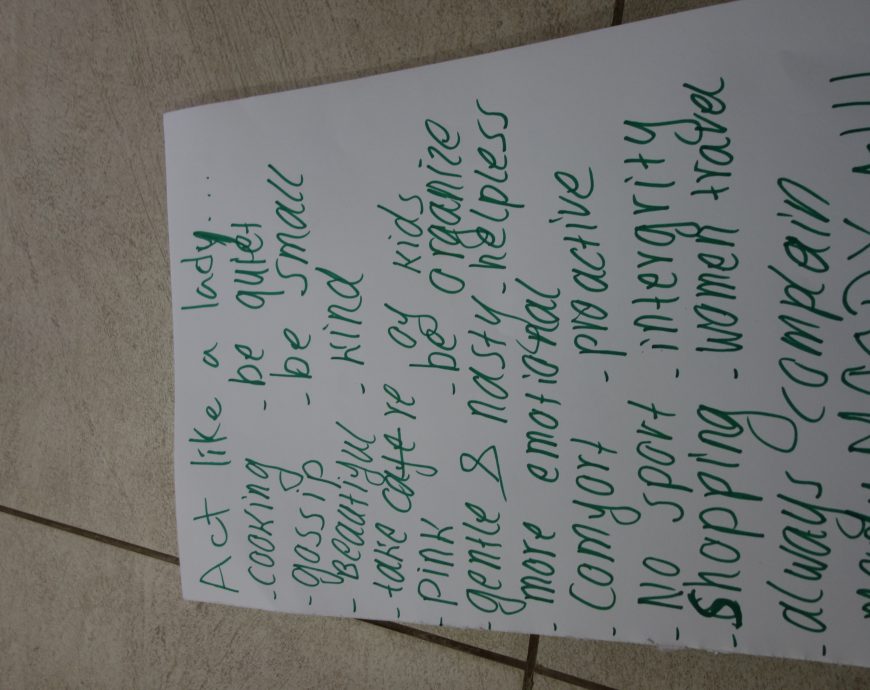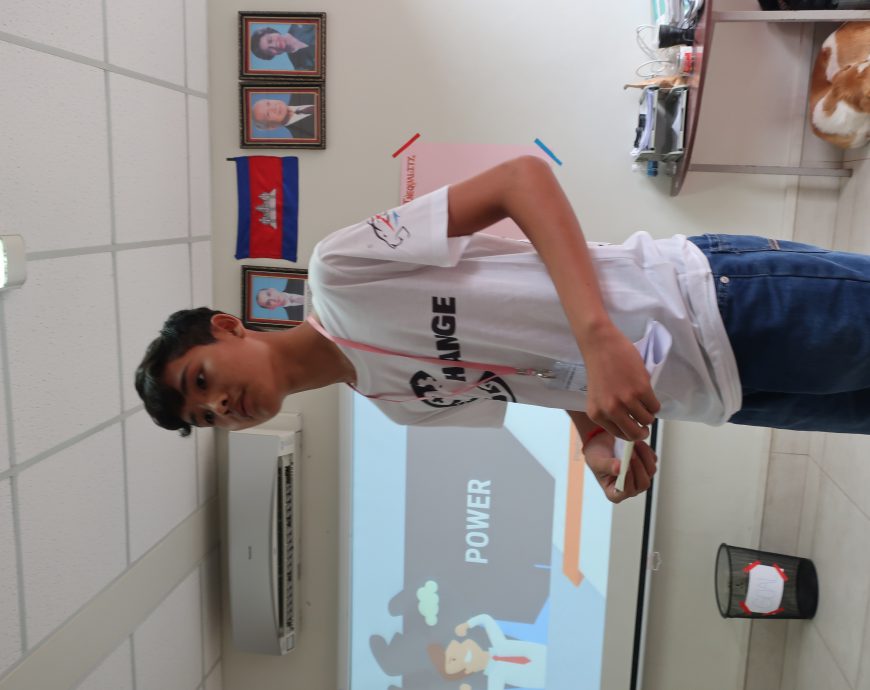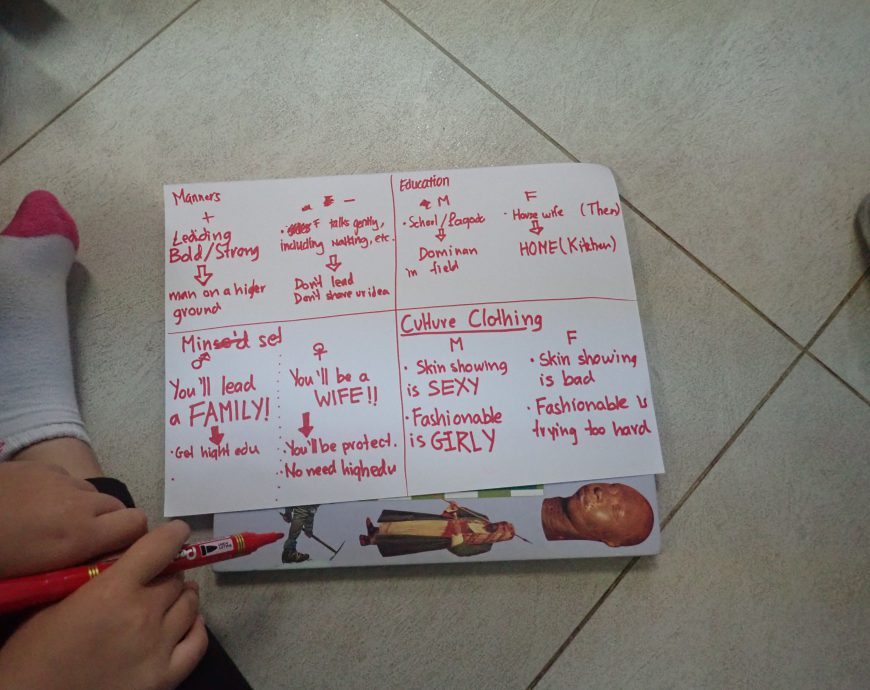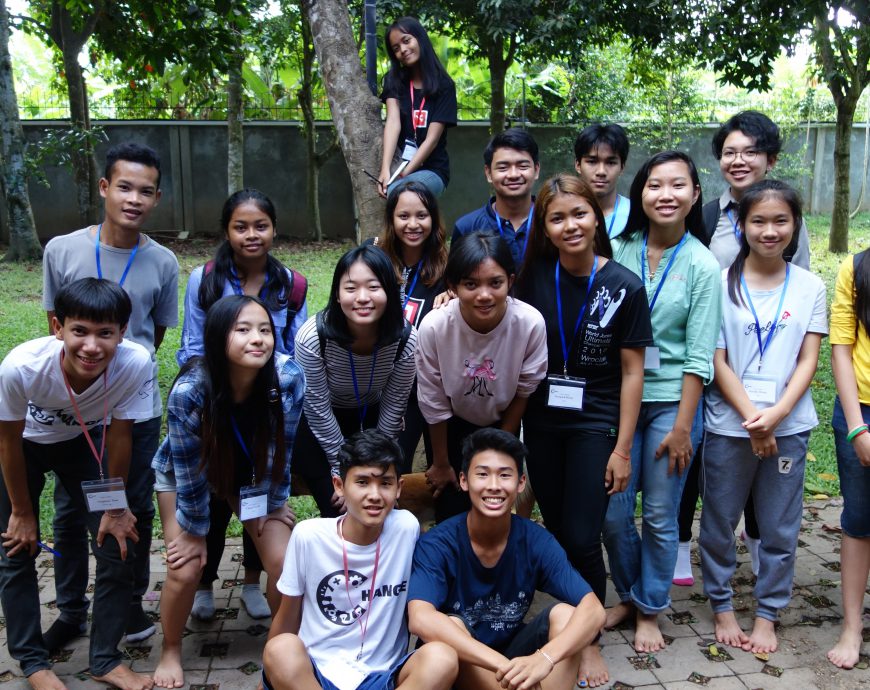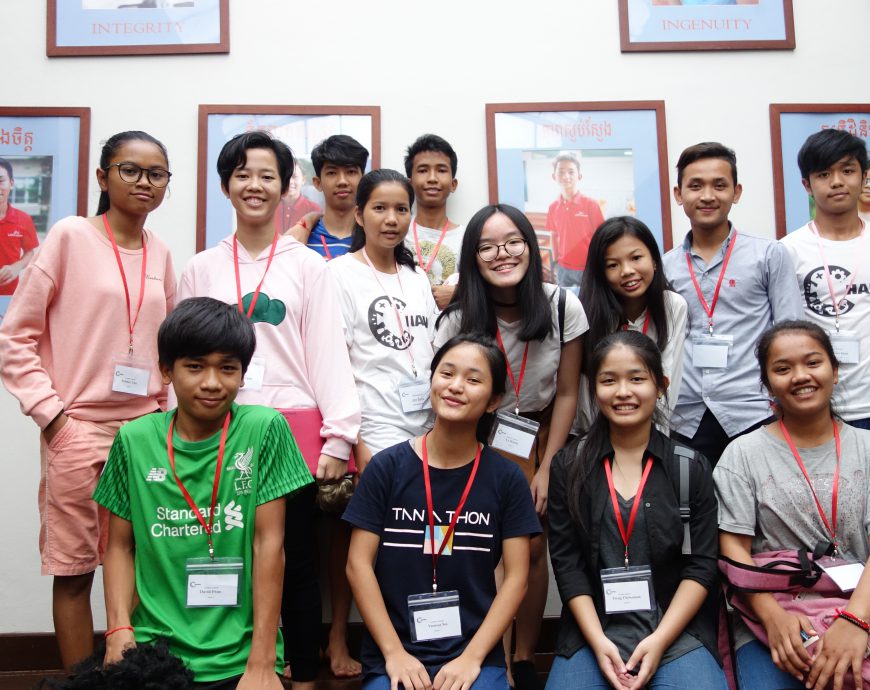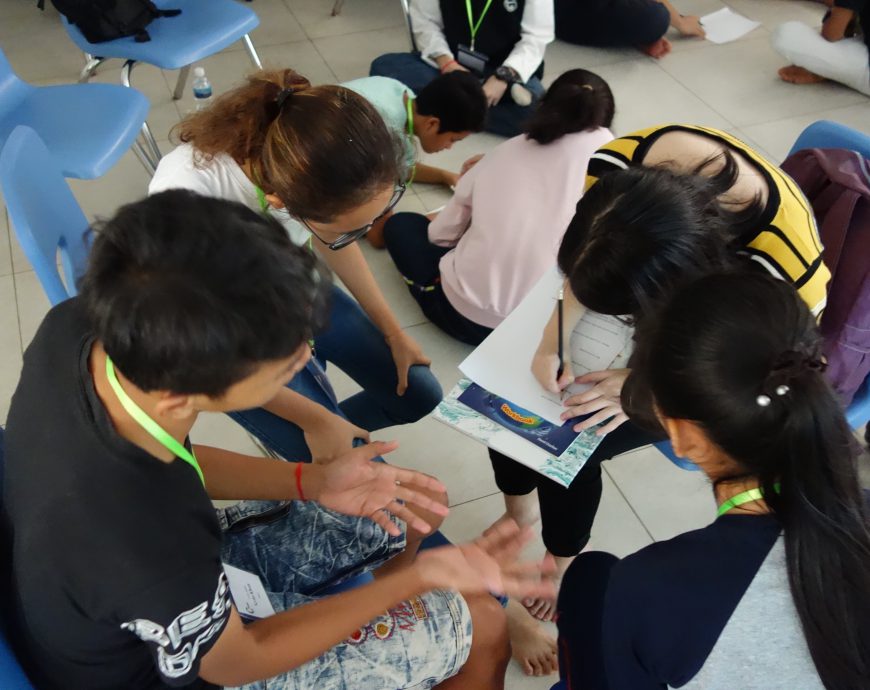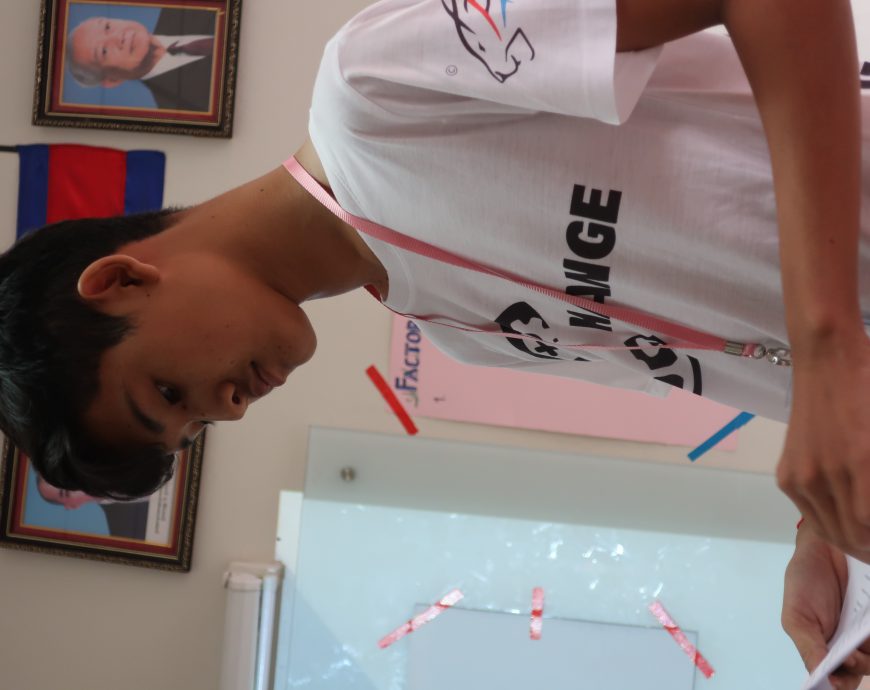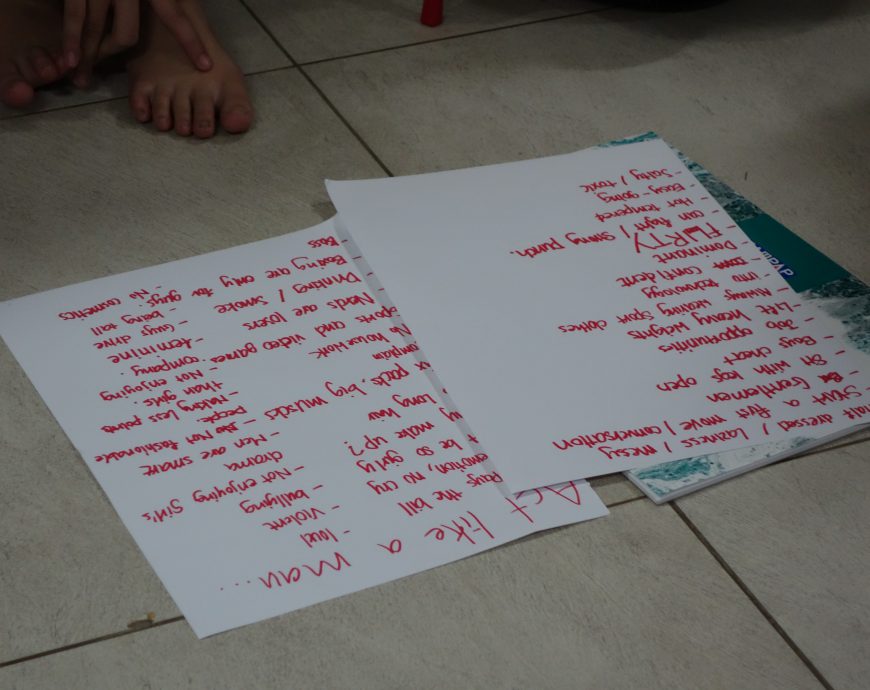As a change agent for Cambodia, I always dream to see my country become a model for others. So this is why I am here. At a vast potential school, the Liger Leadership Academy, where each of us the “change agent” will do our best to accomplish our mission and create opportunities for other in order to develop this country with determination and optimism.
Change Agent. Responsible. Respectful.
These three words encompass my soul. These are the words that characterize me today. The absence of those words would make me a different person. I believe that responsibility and respect are necessary to be a change agent for this lively country, Cambodia.
In my first five years at Liger, I have done countless projects as a change-agent to give-back to my communities: installing biodigesters, writing Animal Guide of Cambodia book, implementing STEM program to government schools, investigating dinosaurs in Cambodia, presenting about HIV/AIDS to other people and endless more. Although that seems to be a lot of projects, I acknowledge that it is just not enough; the trade isn’t equalizing yet.
Every time I went to my hometown during the holiday, I observed every moment of my family but also my neighbors’ without exception. I recognized that whenever there is a party or a family dinner, the ladies would operate the house-chore: cooking and cleaning. On the other hand, the men would sit in a circle, enjoy every sip of the beer, and firmly consume the delicious appetites.
Not only my own family, in the contemporary day, many Cambodians still fall into the pitfall trap of inequality rules that the elders had established. One of them in which, the poem called “Chbab Srey” where it outlined the rules that women in the 19th century require to follow: walk softly, speak quietly, obey your father and husband, laugh without showing the teeth, and much more. At the same time, when a girl gets a head start on her puberty, she is required to go under the shade; which a phrase in Khmer called “ចូលម្លប់”. This is the time that she will instruct how to be a wife: cook, clean, and stay under shade.
This is the real problem.
In the third round of exploration, I was introduced to a new topic called Gender Equity Exploration. We had seven weeks to learn and to target the project objectives. Each day of the seven weeks, our facilitators–Samantha and Cara–introduce different aspects in the gender-relative-inequality issues, especially the new language. Although most of the times my teammates and I get uncomfortable with some topics, we were still respectfully discussed the problem with intellectual solutions. Besides, the twelve of us believe that the causes of inequality emerge from the society, and we all are a part of the society; we all need to solve the enormous threat because we are all contributed to it.
As Dalai Lama once said, “If you want to change the world, first try to improve and bring about change within yourself.” On the 27th and 28th of January, our twelve members of the exploration hosted an event called “Gender Summit” for about 100 high school students from international schools, government schools as well as some local organizations. Our goal was to encourage dialogues regarding gender issues. Our team alerted that gender is not a common topic that Cambodian discuss in their daily conversation.
The event encompassed four main sessions: culture, language, economics, and power. The latter is my responsibility; we talked about how power influences the inequality. In this session, we introduced an activity called “Power Walk”. This activity let them apprehend the reasons behind inequality while introducing and let them put themselves in some others’ shoes. We gave them a variety of characters that reflected in Cambodia society: doctors, teachers, homeless children, LGBTQ+, and the minority people. As we read the statements that we all have, we want them to think does the statement match with their character, if yes they need to step forward a step and if not just stay where they are. When no more statement is being read, we allowed them to shoot the given paper ball to a bin. We can clearly see that the people that are at the front with more power have more chances to shoot the ball into the bin than people that are at the back. Although some people at the back manage to score we explain that the people in front are easier to reach the goal where people at the back need to work extra hard to reach their goal.
Gender is not a small topic; thus, the topic of power is really sensitive.
Yet, there are more to come. As described in a term “change agent” we didn’t stop there. Both, the students and facilitators are really fascinated by the topic.
In English literacy class, our teacher reinforces the topic every day through different articles and activities. We read many articles and try to connect it with the gender-related topic where we can discuss further deep from different aspect from each student. One of the articles is about the Bacha Posh, the “UNDERGROUND GIRLS’ SKIRT TRADITION TO LIVE AS BOYS,” where the Afghanistan young girls dress-up as boys until they reach their puberty; the girls did not know how to be girls since they always been treated as boys.
Moreover, we’ve been participating in the One Billion Rising event: a global movement and the day of action and dancing, in the protest to end rape and sexual violence against women with the theme of breaking the silence.
This is just a start.
As a change agent, I believe that gender issue is forever to be solved, we need all the people energy and ideas to be conscious of the topic itself. So by doing this step by step, we will help reduce the gender gap with the respect for the elders’ belief. As one of the Khmer wisdom confidently stated “តក់ៗពេញបំពុង” which mean if we do something little by little, through patience and efforts, we will accomplish our goal whether there are many obstacles out there waiting to tackle us.

